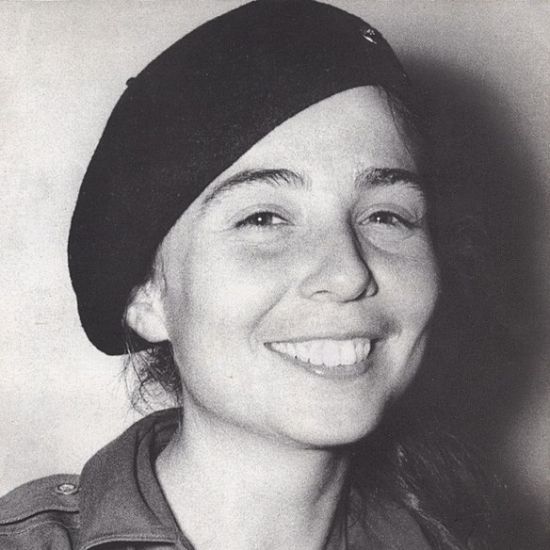
Vilma Espin – 7 April 1930-18 June 2007
Vilma Espin Guillois de Castro, revolutionary fighter, communist and champion of women’s equality, died on 18 June 2007. Her history is inextricably tied up with that of the Cuban revolution.
Born in Santiago in eastern Cuba in 1930, Vilma Espin studied industrial chemical engineering, an almost unheard-of choice for a woman in pre-revolutionary Cuba. After the failed attack on the Moncada barracks in Santiago on 26 July 1953, she offered refuge to the young revolutionaries fleeing Batista’s bloody reprisals. After completing a further degree at Massachusetts Institute of Technology she joined the small group of rebels in Mexico led by Fidel and Raul Castro and Che Guevara, who were planning to sail to Cuba to spark an insurrection. Espin worked as a courier between the group and revolutionaries in Cuba itself before going underground in Santiago to work alongside Frank Pais, the internal leader of the revolutionary forces, and prepare a diversionary uprising when Castro’s group of 82 guerrillas landed on the eastern coast of Cuba. After Frank Pais was killed in 1957, Espin led the civilian resistance in Santiago until she was forced to flee to join the rebels in the Sierra Maestra. She acted as interpreter in the historic interview of Fidel Castro by the New York Times in 1957, which countered Batista’s claim that Castro had been killed and gave fresh impetus and hope to the revolutionary movement.
In 1958, Vilma Espin, alongside Raul Castro, was part of opening up the Second Eastern Front, liberating swathes of Cuban territory and setting up hospitals, schools and soviet-type democracy. In Fidel Castro’s words ‘Vilma did not shrink from any danger’. Vilma Espin married Raul Castro a few weeks after the triumph of the Revolution.
For Espin, the real work was just beginning. Before the Revolution, working class women in Cuba had been condemned to lives of illiteracy, ignorance and servitude, as rural labourers, domestic workers or prostitutes. Vilma Espin was a leading force in the setting up of schools for women; she was a member of the National Literacy Commission, touring the country to ensure young people were incorporated into defence tasks and in particular emphasising military training for women. Today women are represented in every area of work in Cuba, making up 66% of technical and professional workers.
In 1975, the Family Code enshrined equality between men and women in law and included a legal obligation for men to take on their share of the housework and childcare so that women could play a full role in the economy and the political tasks of the Revolution.
But Vilma Espin was no bourgeois feminist and despised those who sought to separate the struggle for women’s rights from their social conditions. Always a committed communist – Espin was the first woman in the political bureau of the Cuban Communist Party and the council of state – she said in an interview in 1980:
‘I believe in those feminist groups who tie the solution to the oppression of women, of the liberation of women, to the liberation of all the exploited, the oppressed, the discriminated against, which also means taking into consideration social, political and ideological, as well as economic problems, from the perspective of a class, sex and race analysis.
‘The problems women face cannot be seen in isolation from other social problems nor analysed outside of their economic context. Nor should they be considered as side issues within a particular social, historical situation…
‘It is ridiculous, for example, to think that in an imperialist country a businesswoman and a woman worker can be equal…in today’s world the fight for sexual equality in many places is simultaneous with the struggle for revolutionary change.’
In 1960, the formation of the Federation of Cuban Women, of which she became lifelong president, allowed women, in Espin’s words ‘[to support] the Revolution, by participating in the battle for development and revolutionary advances which can build the economic, legal, political, social, cultural and ideological foundations that can guarantee the full exercise of women’s equality, which has been proclaimed by the Revolution as one of its principles’ and to ‘help them understand the role socialism guarantees women as free and equal human beings’.
The socialist Revolution that offers all Cuban women greater possibilities for freedom, equality and fulfilment than any other country in the world is in no small part a legacy of Vilma Espin’s struggle. FRFI salutes a great revolutionary and extends sympathy to her family and comrades.
Cat Alison
FRFI 198 August / September 2007




